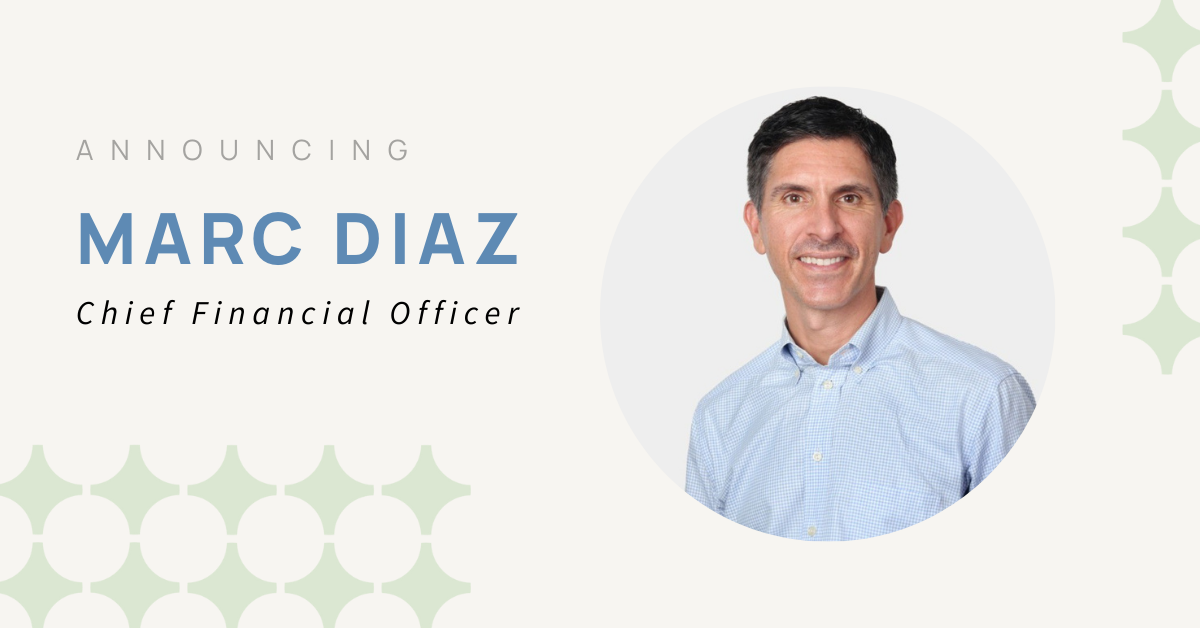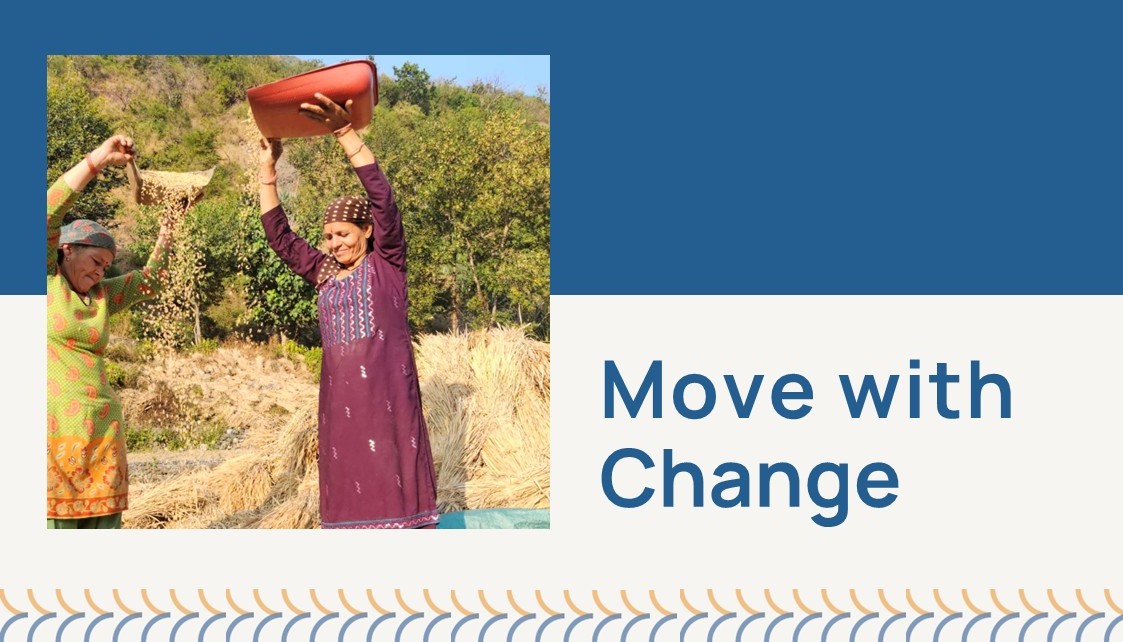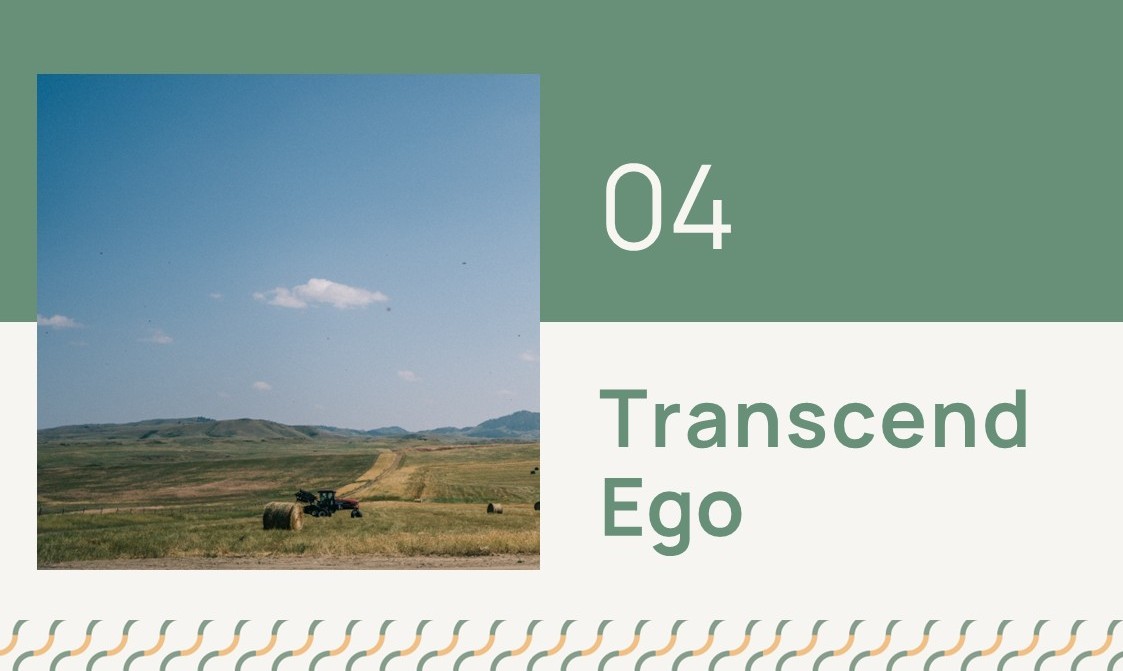Imagine this scenario: A group of community leaders, food justice activists, and urban gardeners talking about money in one room. Sound strange? Some might say yes, but in RSF Social Finance’s worldview, this is exactly how it should be. The setting described above illustrates our ninth Shared Gifting Circle, a participatory grantmaking process that inspires collaboration and dialogue among non-profit organizations working in a similar field or region.
We held the West Oakland Shared Gifting Circle in August 2017 at the Mandela Gateway community room with a group of nine nonprofits involved in sustainable food and agriculture serving the neighborhood of West Oakland, California. In attendance were representatives from:
- Acta Non-Verba,
- Bottoms Up Community Garden,
- Center for Third World Organizing,
- City Slicker Farms,
- Fresh Life Foundation,
- Mandela MarketPlace,
- Planting Justice,
- St. Vincent de Paul of Alameda County, and
- WOW Farm Youth Program of Game Theory Academy.
We convened the group with a purpose: allocate $100,000 among the Circle participants. Funding was made possible by the Local Food Collaborative and bolstered by a $50,000 matching grant. Each participant was invited to submit a proposal outlining their funding priorities, to share with the other participants.
Every RSF Shared Gifting cohort is unique and inhabits an experimental aspect distinctive to its members. This group was the first Shared Gifting Circle taking a hyper-local approach, focusing on grassroots efforts in the community with organizations dedicated to uplifting and empowering local residents. The participants of this Circle are all actively involved in the sustainable food and agriculture space of West Oakland, an area historically known as a “food desert” because of its lack of accessibility to fresh, healthy food options.
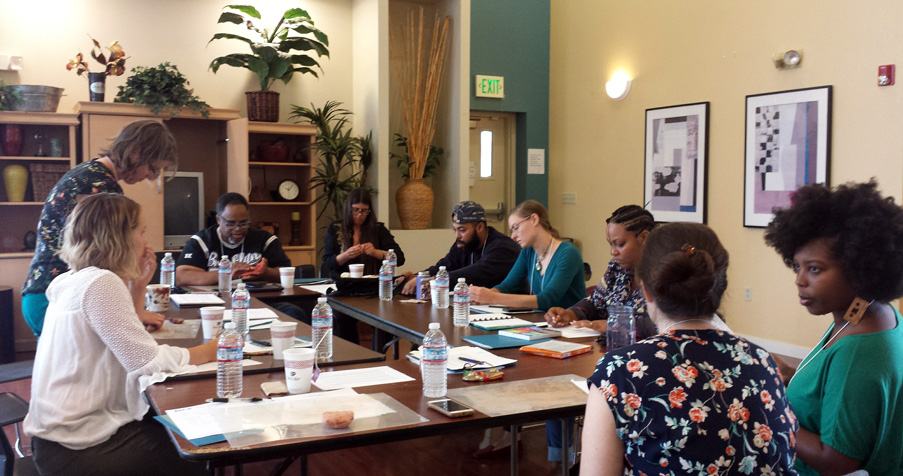
In keeping with the grassroots theme, the group met in the community room at Mandela Gateway, an apartment complex financed through the affordable housing efforts of the city of Oakland. The space also serves as a reminder of a dearth of communal meeting spaces exists in low-income neighborhoods. Private investment in commercial real estate can often neglect safe gathering areas for the public, but luckily, Mandela Gateway provided an option that fit our needs.
Nikki Silvestri, founder and CEO of Soil and Shadow, co-facilitated the day-long meeting and held a special connection to this group. She participated in RSF’s first Shared Gifting Circle and this experience sparked a desire to bring the Shared Gifting grantmaking process down to a microcosm, to a single community. With Nikki at the helm, all of the participants felt confident to embrace difficult conversations and work towards active and engaged dialogue with one another.
The meeting proved to be a combination of an exchange of ideas and lived experiences, tensions felt from past interactions, and collaborative impulses that sprang forth. Many moments were indicative of the dynamics that already existed in the community, and through these facilitated dialogues were openly addressed. Conversation among circle participants dealt with contested ideas surrounding equality and equity, permaculture, Black and indigenous agrarian practices, and the availability of grocery stores in sections of the community.
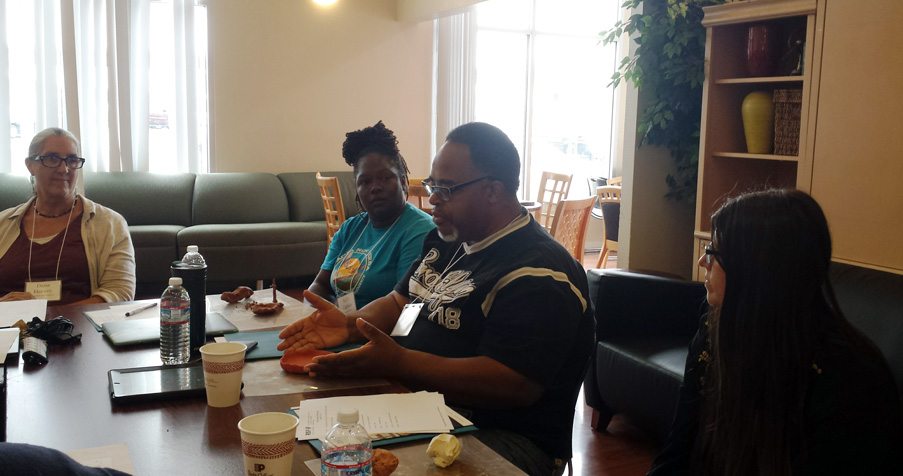
During the part of the day where granting took place, each nonprofit had time to share their proposal and field questions from the group. One of the larger organizations in the circle, Mandela Marketplace decided not to submit a proposal for funding after collectively agreeing as an organization that they would rather support the efforts of the other participants. Dana Harvey, executive director of Mandela MarketPlace, stated she “was very happy to be able to provide support to organizations that do meaningful work, and are our partners.” Similarly, Nicole Jones, of St. Vincent de Paul of Alameda County, agreed that “it’s so empowering to be able to give money away to organizations I admire.”
In addition to funding each other’s proposals, this inspiring group of nonprofits also decided to make grants to three other organizations working in the West Oakland neighborhood: a local elementary school, a community hunger relief project, and an organization committed to a resilient and vibrant local economy. They also agreed to put a small amount of funding aside to enable them to host a gathering where they can continue to get to know each other and their communities and find ongoing ways to collaborate.
In a follow-up survey given to the Circle participants, many highlighted the importance of this type of participatory process: “When you take an egalitarian approach to the sharing of resources, seemingly insurmountable problems become doable,” wrote Curtis Flemming of the Fresh Life Foundation.
Shared Gifting turns the dynamics of philanthropy from one of scarcity and competition to one of abundance. “It builds a culture of cooperation and spreading wealth rather than competition and a lack of transparency in philanthropy,” wrote Haleh Zandi, executive director of Planting Justice.
A powerful lesson for those willing to embrace this new way of doing philanthropy is that while it catalyzes dialogue and resource sharing, the complexities and dynamics entrenched in a community can often influence the depth to which a group is willing to collaborate. The “process is the task,” and Shared Gifting takes us one step closer to working in this framework.
Written by Afsana. Afsana is a program associate on RSF’s philanthropic services team.
